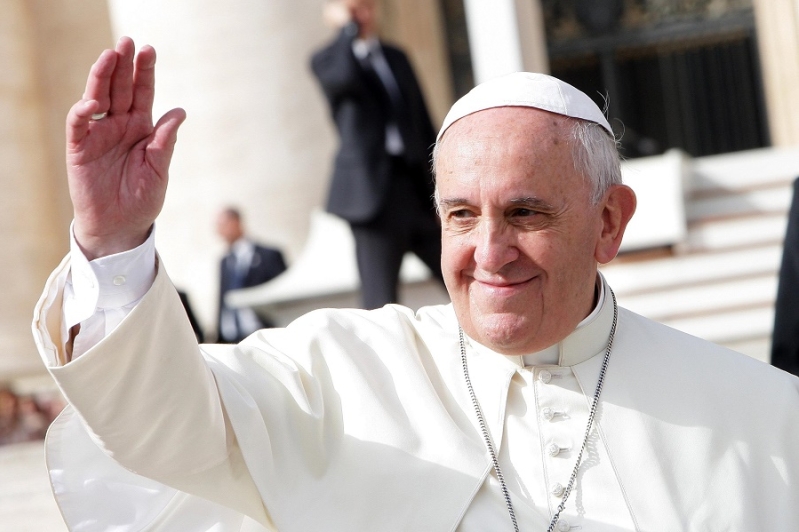
Pope Francis has urged Christians to refrain from watering down their faith or the message of the Gospel, arguing that the Christian's true identity is rooted in the scandal of the Cross.
Speaking during Mass at the Casa Santa Marta on Tuesday morning, the Pope referenced 2nd Corinthians 1:18-22 in telling listeners to view "Christian identity" as "a long journey" from ambiguity to a strong faith that we can bear witness to in our daily lives, Vatican Radio reports.
The Pope explained that while we are all sinners, God provides His people with the strength to persevere and continue our journey. "Sin is part of our identity", he stressed, but we are sinners with faith in God "who has anointed us, put his seal upon us" and given us the Holy Spirit as a pledge in our hearts.
This identity, the Pope explained, can be seen through the way we bear witness to the world.
"We are not people who follow a philosophy, he warned. "We are anointed," and have the "guarantee of the Spirit."
Sadly, in today's culture, this witness is easily weakened or watered down. Francis highlighted three particular ways this type of "watering down" can occur. The first is by moving from our concrete faith in Christ to a wishy-washy religion of just prayers and ideas. These "modern Gnostics", Pope Francis said, are tempted to avoid the "scandal of the Cross" and are content to seek God through their "rather ethereal Christian spirituality".
"The Christian identity is scandalous. And the temptation is: 'No, no, no scandal'", he said.
Secondly, the Pope went on, there are those who forget they have been anointed and given the guarantee of the Spirit, so they are always searching for some "novelty" in their Christian identity.
Finally, the Pope said, there are those whose identity is weakened by moral and human "worldliness" and the desire to change the Biblical definition of morality and holiness. These people, the Pope warned, are like salt that loses its flavor.
"We see Christian communities, and also Christians, who call themselves Christian, but are unable and who don't know how to bear witness to Jesus Christ. And so this identity goes backward, backward, and is lost. We see this worldly nominalism every day," he said.
The Apostle Paul, Francis observed, boasts of Jesus "who became man and died through obedience." This, he said, "is the identity and here also is the witness." The Pope concluded: "We must ask of the Lord to always give us this gift, the gift of an identity that does not seek to adapt to things," to the point of becoming like "salt that loses its savor."
Pope Francis, who accepted his election as 266th head of Roman Catholic church in 2013, has been named the world's "most influential leader" by Twitter users and is among Time Magazine's "100 Most Influential People."
Additionally, the latest Pew Research Center Survey found that while the Pope is most widely admired by Catholics (90%), an impressive six-in-ten Protestants and two-thirds of the religiously unaffiliated also view him with "great favor."
According to NBC, the Pope's popularity has eclipsed any numbers his predecessor, Pope Benedict XVI, ever posted and puts him on par with Pope John Paul II in the 1980s and 1990s.






